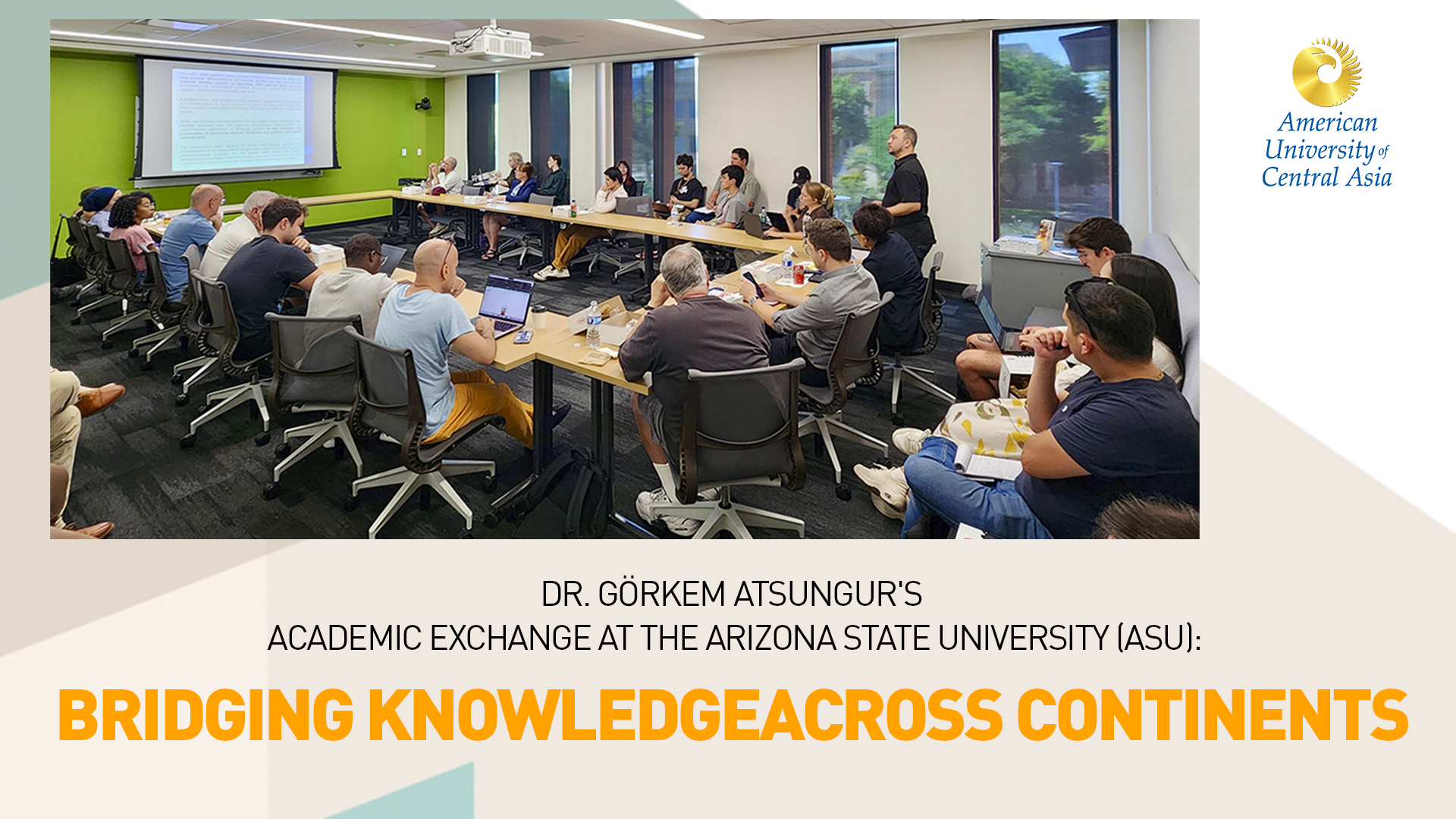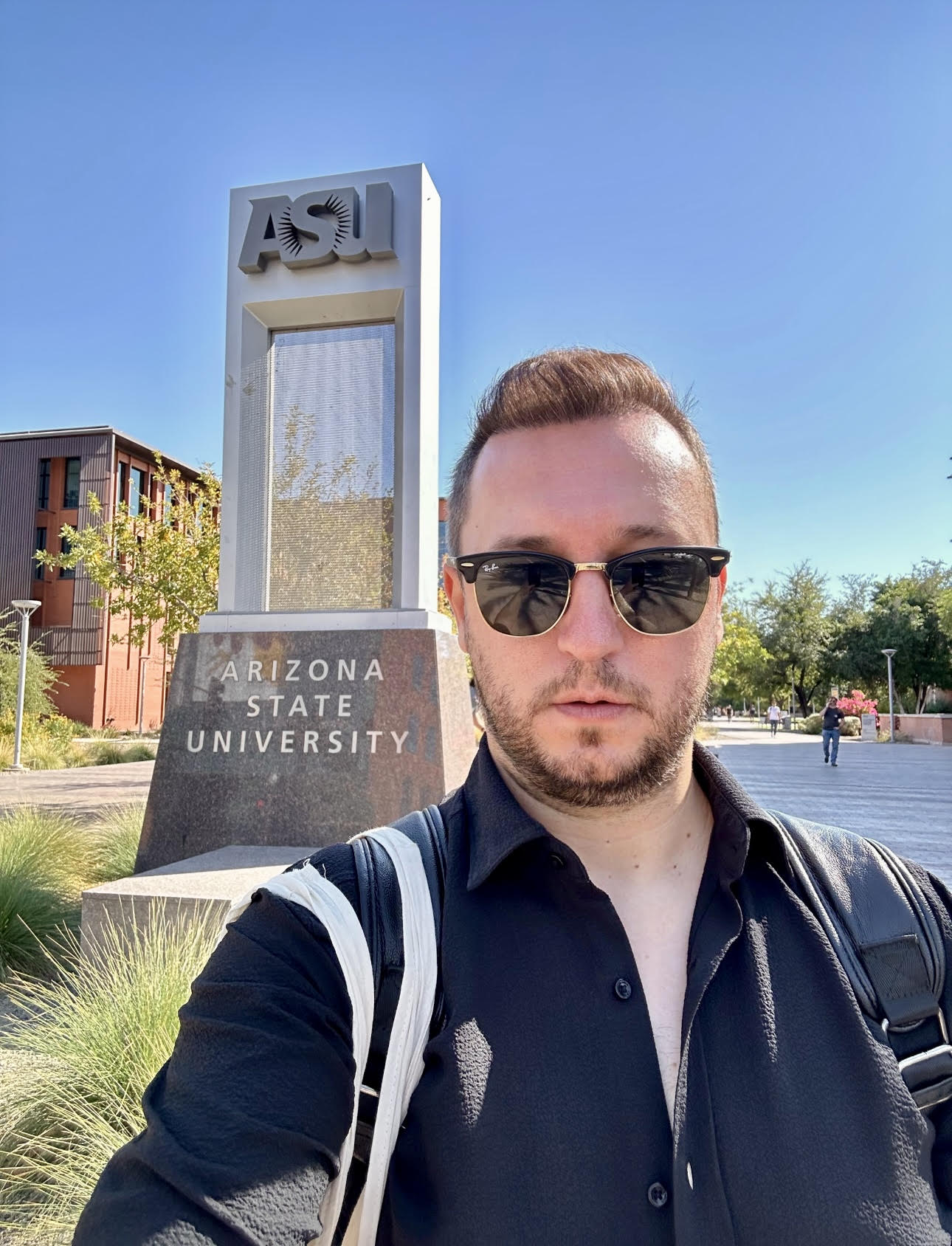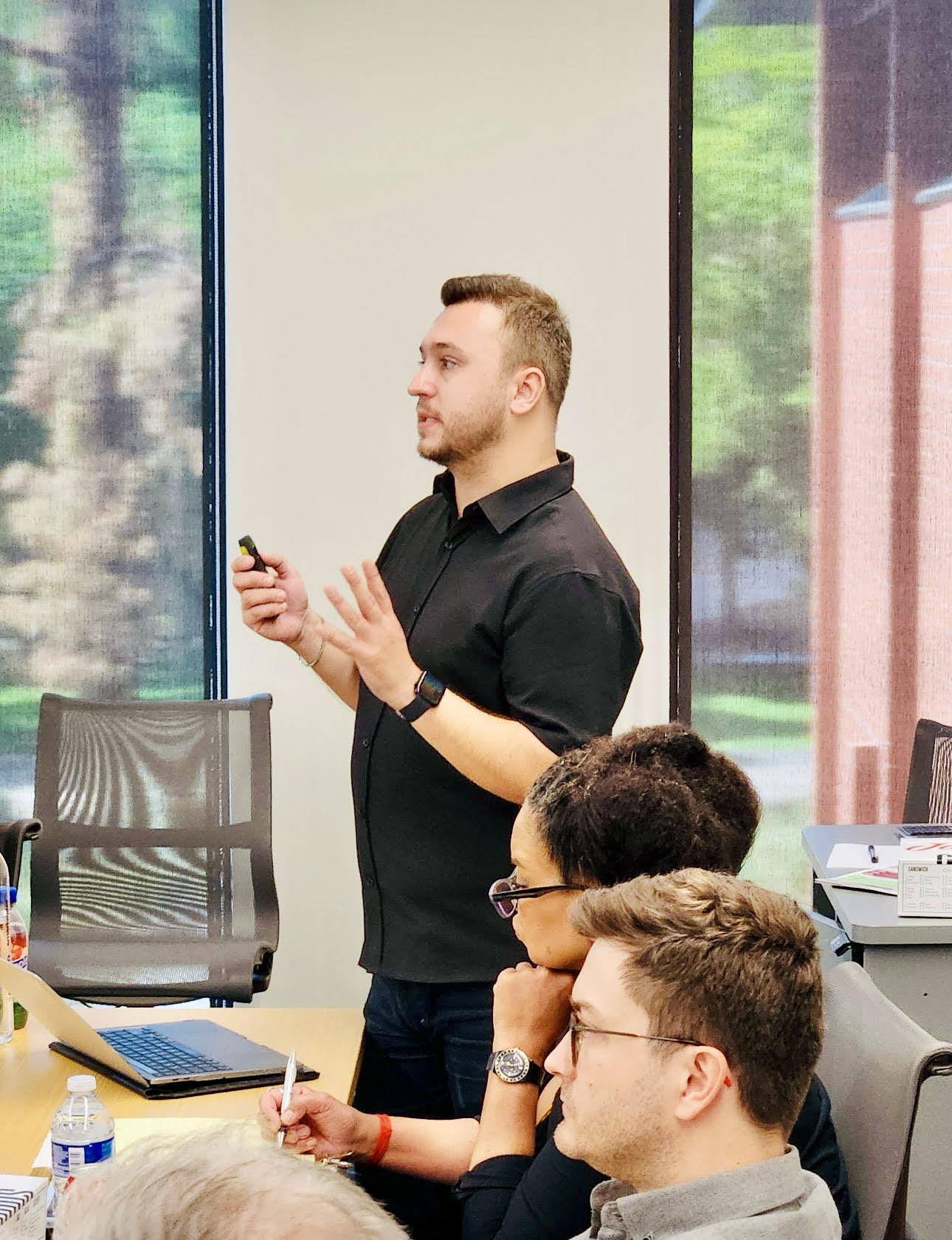November 20, 2024
��

��
Dr. Görkem Atsungur, Associate Professor and Chair of the International and Comparative Politics (ICP) Department at the �Ӱɴ�ý (�Ӱɴ�ý), recently completed a significant academic exchange in the United States.��
Dr. Atsungur's visit was facilitated by the Open Society University Network (OSUN) Faculty Mobility Fellowship program, reflecting the OSUN universities' commitment to fostering cross-cultural academic collaboration and enhancing global academic networks.
From October 4 to 21, 2024, Dr. Atsungur was hosted by Arizona State University (ASU), where he engaged with the School of Politics and Global Studies (SPGS) and The Melikian Center: Russian, Eurasian, and East European Studies. This visit provided a unique platform for exchanging ideas and insights relevant to international politics, fostering deeper understanding in fields critical to today's globalized world.
During his enriching visit, Dr. Atsungur had the opportunity to meet with several distinguished scholars, including Dr. Güneş Murat Tezcür, a renowned expert in comparative politics, particularly in Turkish politics; Dr. Keith Brown, who is an Anthropologist and the Director of the Melikian Center; Dr. Craig Calhoun who is a professor in a comparative and historical sociology and social theory; Dr. Margaret Hanson who is a political economist whose interdisciplinary and multi-methods research examines state-society relations, particularly in Central Asia and Caucasus. These meetings facilitated discussions on a broad range of topics, from the dynamics of geopolitical strategies to critical perspectives on regional politics, showcasing the value of collaborative research and teaching, and dialogue in addressing complex global issues, particularly between �Ӱɴ�ý and ASU.��
A highlight of Dr. Atsungur's visit was his public lecture on the comparative foreign policies of Russia and Türkiye. He explored how political elites attempt to construct and de-construct the state identities, with particular attention to the discourse(s) of imperial consciousness. The lecture gave attendees valuable insights into how historical and political narratives on imperial legacies might continue to influence contemporary foreign policy directions and identity construction by political elites in today's Russia and Türkiye. More than thirty participants were in the lecture, and the attendees asked several essential questions on Russian and Turkish politics.��
Dr. Atsungur's visit underscores the value of international academic exchanges that not only enhance personal scholarly pursuits but also strengthen institutional ties. Such initiatives are instrumental in building bridges across continents, paving the way for future collaborations that can contribute to more nuanced understandings of global political landscapes. As the academic world becomes increasingly interconnected, such mobility fellowships and exchanges become increasingly crucial in a globalized world.��


